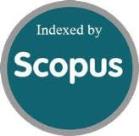A Study on the Development of Game-based Mind Wandering Judgment Model in Video Lecture-based Education
DOI:
https://doi.org/10.46604/peti.2018.2748Keywords:
online education, e-assessment, flipped classroom, judge system, minimum learning activityAbstract
Although video lecture materials are very efficient learning materials, they are likely to be unilateral learning materials by the lecturer. It is easily degraded to be one-sided learning, which has been considered as a problem of online education, and it is difficult to judge whether learners are actually learning. Therefore, in this paper, a minimum learning activity judgment model that can automatically determine if they actually learn through mind wandering judgment was proposed to overcome the limitations of previous learning materials, and educational effect verification experiment was performed. Experiment results show that the video lecture class using the minimum learning activity judgment system was effective in improving the academic achievement.
References
D. F. O. Onah and J. Sinclair, “Learners expectations and motivations using content analysis in a MOOC,” EdMedia 2015 - World Conference on Educational Media and Technology, vol. 2015, no. 1, June 2015, pp. 185-194.
C. J. Bonk, M. M. Lee, T. C. Reeves, and T. H. Reynolds, MOOCs and open education around the world, United Kingdom: Routledge, 2015.
J. Jang, I. Ko, and C. Jeong, “The impact of e-learning system characteristics on learner commitment and satisfaction,” Journal of Information Technology Applications & Management, vol. 15, no. 1, pp. 99-116, 2008.
D. S. Zhang, L. Zhou, R. O. Briggs, and J. F. Nunamaker Jr. “Instructional video in e-learning: assessing the impact of interactive video on learning effectiveness,” Information & management, vol. 43, no. 1, pp. 15-27, January 2006.
M. T. H. Chi, “Active‐constructive‐interactive: A conceptual framework for differentiating learning activities,” Topics in cognitive science, no.1, no. 1, pp. 73-105, January 2009.
P. Pham and J. T. Wang, “AttentiveLearner: improving mobile MOOC learning via implicit heart rate tracking,” Proc. International Conf. Artificial Intelligence in Education, Springer Press, June 2015, pp. 367-376.

Published
How to Cite
Issue
Section
License
Submission of a manuscript implies: that the work described has not been published before that it is not under consideration for publication elsewhere; that if and when the manuscript is accepted for publication. Authors can retain copyright of their article with no restrictions. Also, author can post the final, peer-reviewed manuscript version (postprint) to any repository or website.

Since Oct. 01, 2015, PETI will publish new articles with Creative Commons Attribution Non-Commercial License, under The Creative Commons Attribution Non-Commercial 4.0 International (CC BY-NC 4.0) License.
The Creative Commons Attribution Non-Commercial (CC-BY-NC) License permits use, distribution and reproduction in any medium, provided the original work is properly cited and is not used for commercial purposes







